Epsom Salt, also known as magnesium sulfate, is a chemical compound made up of magnesium, sulfur, and oxygen. It is not the same salt we use in cooking.
These are inexpensive, non-toxic, and natural, are a perfect boost for your plants. Not only will they help them grow, but they will make them healthy too.
Epsom Salt has many benefits like it provides magnesium, which is the most abundant mineral in our body. It promotes sleep and helps in stress reduction. It helps in constipation and helps make your muscles not sore, relieve cramps, reduces pain and swelling.
- EXCEPTIONAL PURITY AND THERAPEUTIC VALUE; Ultra Epsom Salt is the highest quality pharmaceutical...
- BENEFITS INCLUDE relaxing the nervous system, curing skin problems, soothing back pain and aching...
- Works well for bath salts, body scrubs, sore muscle and foot soaks and in organic gardening
- DISSOLVES WITH EASE for quick and efficient use
- KOSHER CERTIFIED, Allergen and cruelty-free and devoid of genetically modified organisms (GMOs)
So many benefits in one small item, who could have thought. People have been using them as a bath salt, as an exfoliant, as a laxative, and many more uses, but now we have come to know that Epsom salts are a boost to plants too!
Magnesium sulfate helps in increasing the nutrient absorption in plants.
Factors You Should Note Down Before Putting Epsom Salt to Use in Your Garden
- Technical or agricultural grade Epsom salts are used for garden or outdoor purposes. Still, not all brands are safe to use. Only those marked with ‘USP’ are safe to be used by humans because those brands have been tested and proven to be suitable for humans by the FDA.
- Epsom salts have natural laxative properties, so you need to keep the salt away from your pets and children. Apart you are this, and you should always wear gloves when using the salts since magnesium-sulfate can directly absorb into your skin.
- You only must use the Epsom salts if your soil is low in magnesium. Therefore, you should always first check your soil. If it is low in magnesium, only then use the salts.
- Lastly, remove any doubts from your mind about the negative aspects of Epsom salts. They will not destroy your crop or plants, instead of yield strong, powerful, and healthy seedlings, which will give you a strong, healthy, and beautiful plant.
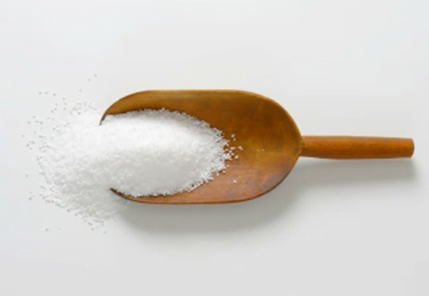
Benefits of Epsom Salts on Plants
Better from Beginning
Spreading Epsom salt at early stages, which is putting seeds, will strengthen the cell walls and provide immense energy to the seed to grow out healthy before it converts to a plant.
Apply at least one tablespoon of salt for every gallon of water you pour on seedlings after putting them in the soil.
- Soak in the Goodness - Free of added fragrance, these 100% pure, medium-grain epsom salts help...
- Ingredients with a Purpose - No added ingredients or fragrance; this natural salt helps remove...
- How to Use - Add 2 cups of Epsom Salt to warm bath water. Soak for 20 minutes. For feet, mix one cup...
- More Than Just Bath Salts - Exfoliate skin in the shower by mixing a handful of Epsom Salt with...
- Simple, Botanically-Based Solutions - Our products are curated to complement and enhance your clean...
If not this, you can mix one tablespoon of salt in every hole in the soil before planting your seeds.
For all grass seeds or wildflowers, pour one cup of Epsom salts every 100 square feet mix them thoroughly with the soil and water them. Do this every month, on the beginning day during the growing season.
Increase the Level of Nutrition
Just like we told earlier, studies tell us that magnesium and sulfate present in the Epsom salts are responsible for increasing the nutrients in nitrogen, phosphorous, and sulfur, which are indeed suitable for the plants too.
Giving your plants one tablespoon of salts, one gallon of water twice a month will result in your plant and giant vegetables’ thicker growth.
Remove Pests
We know that you can sprinkle table salt over your plants to remove snails or slugs eating your plants, but instead sprinkle some additional Epsom salts on your plants, and not only will you naturally remove the pests, but you will also make your plant’s root strong, healthy, and the plants will come out beautifully.
Mix one cup of Epsom salts with one gallon of water, and spray over the leaves.
Add Freshness
If your plant lacks minerals, then the process of photosynthesis is interfered with, and the green color of the leaves start to turn yellow.
The more yellow leaves you see, the more magnesium deficiency is there in your plants. A simple solution is to mix one tablespoon of Epsom salts with four cups of water and apply it directly to the leaves.
Magnesium will absorb much better if you directly apply it to the leaves.
Made for Houseplants Too
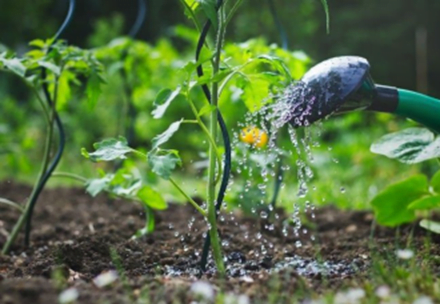
The ph. level of Epsom salts is neutral, and therefore they are gentle on plants, including your houseplants.
Mix two tablespoon of Epsom salts with one gallon of water and spray it on your plant’s leaves rather than on the roots for proper absorption.
Or you can also mix one tablespoon of salt to every soil, each month, for a leafy, vibrant growth of your plants.
Boost Flavor
Just like you mix one tablespoon of Epsom salts with one gallon of water to sprinkle over your plants, similarly, you can sprinkle them on your nuts, berries, fruit trees.
You can do the same with your vegetables, too, by first mixing the salt in the hole before planting seeds, and then mixing salt with water and spraying it on the leaves, resulting in significant and juicy vegetables.
You can do this with any vegetable. The salts are not used only for one specific type of plant or vegetable, or even for that matter, some fruit.
Grow Roses
Before you start to plant a new, rose bush, add one tablespoon of Epsom salts in every hole, mix it up, and water them.
If not this, then you can mix one tablespoon of Epsom salt with one gallon of water and use it as a sprinkler to sprinkle over the rose leaves so that your roses bloom perfectly.
Magnesium in Epsom salts helps increase roses’ better growth since it also contains nitrogen, phosphorous, and potassium.
Remove Tree Stumps
Removing tree stumps costs around $60 to $350 easily, depending upon the tree’s size. However, you can also do it yourself.
First, make a hole with the help of an electric driller on top of the stump. The hole made should be half the stump depth and few inches apart from each other.
Then, pour the salts into the hole and slowly add the water to moisten it a bit. Cover the stump and protect it from the rain so that its dying process is still intact.
The salts will dehydrate wood for several weeks, making it easy for you to cut the stump with an ex and dispose of the roots.
Prevent Root Shock
If you have transplanted roots, you need to take extra care of them.
You need to make sure to avoid the root shock happening, which discolor the leaves, by mixing one tablespoon of Epsom salts with one gallon of water and spraying them onto the roots of your new plants.
If you do not wish to spray like this, you can also mix one-two tablespoons of salt in the soil and apply water to it before putting it in your plant or flower.
Make Your Lawn Beautiful
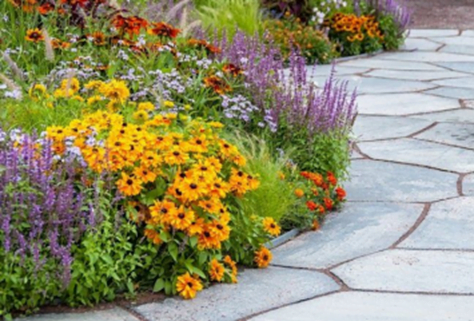
If your soil lacks magnesium deficiency after checking your soil, then your lawn will benefit from Epsom salts.
Applying the salt to your lawn will make your upcoming plants and flowers come all strong, with maximum growth and full of lushness.
You can apply three pounds of salt for 1,250 square feet of a lawn, sprinkle the salt on the lawn, and water it. The result is beautiful mixed healthy flowers and plants.
Conclusion
Epsom salts are not just beneficial for humans but are beneficial for plants too. Sprinkling, spraying, or mixing it with your soil will produce a more muscular, healthy, and beautiful bed of flowers and plants.
The ten benefits mentioned above are facts, and salts have been tested by the FDA and other departments, who have sprayed it onto the leaves and check its growth.
It is a myth that Epsom salts will destroy your plants because these are different from the table salt used in our kitchen.
Epsom salts do not destroy your soil or poison your groundwater. Instead, it helps in yielding a much more substantial root growth, which will be beneficial only for you.
If you are still not sure whether to use the Epsom salts in your lawn or not, try adding them to a single plant first and check the difference by spraying it, watering it every month, until the plant has come out from the seedlings, you will see how healthy, significant, and green your plant is.

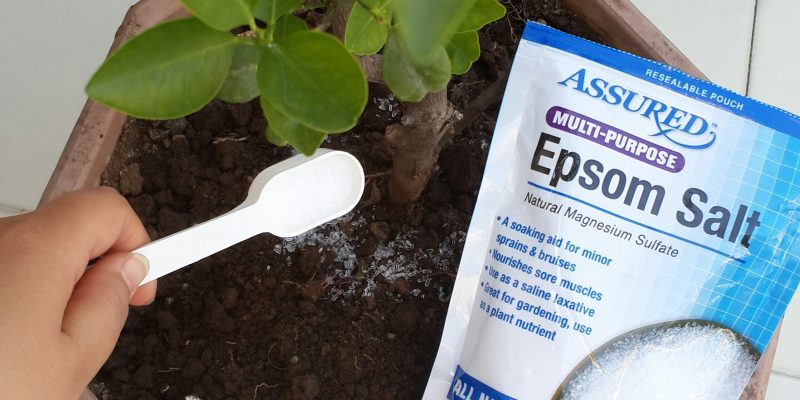


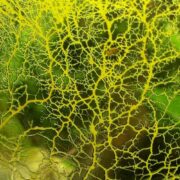
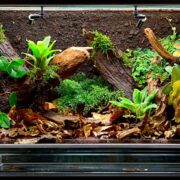
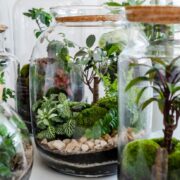
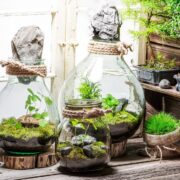
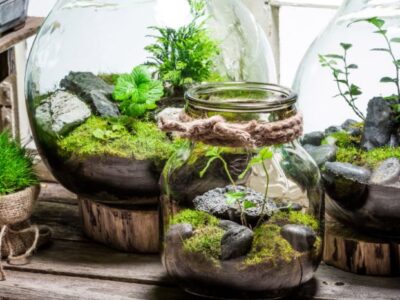
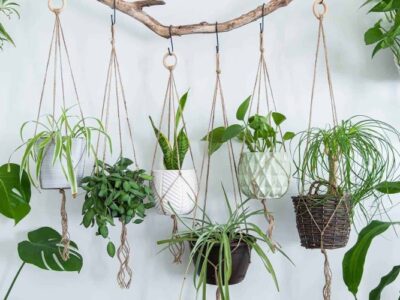
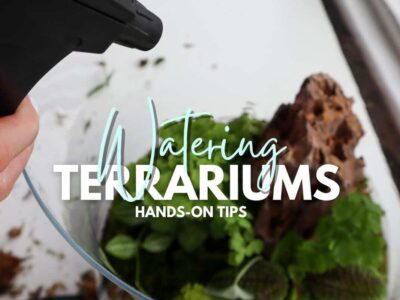
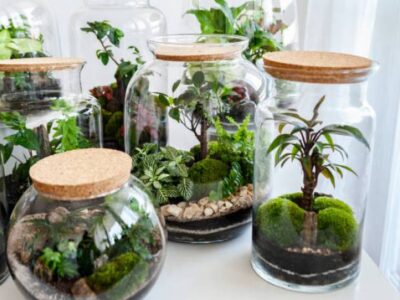
Comments